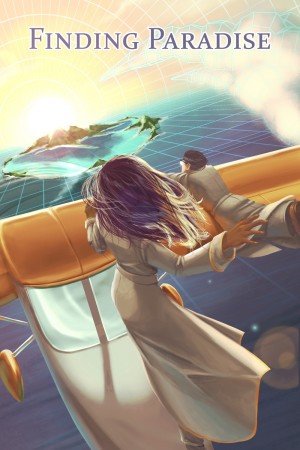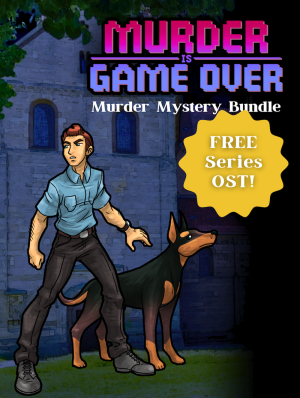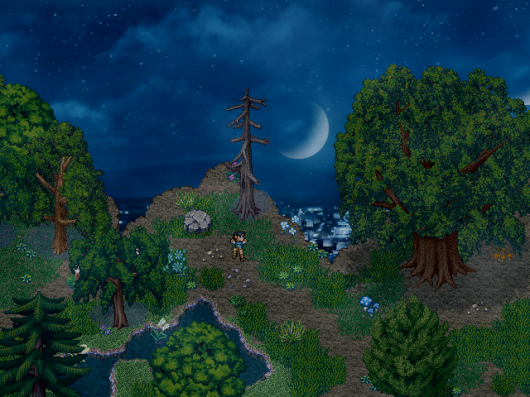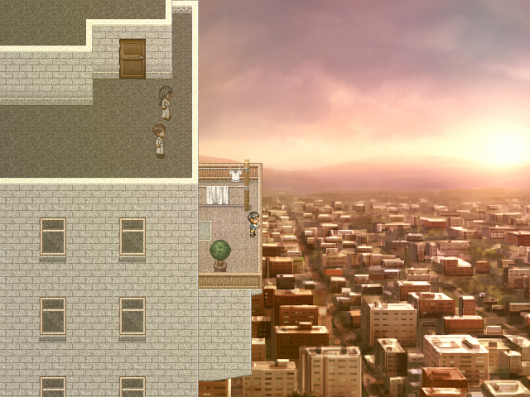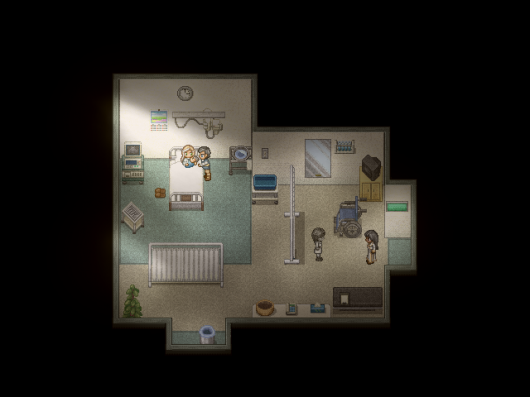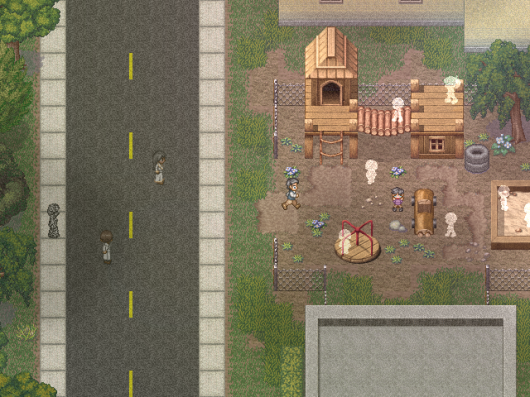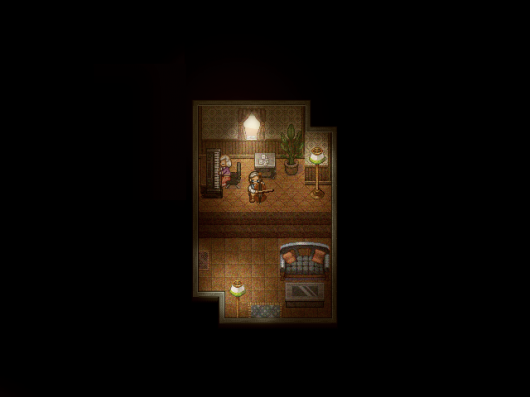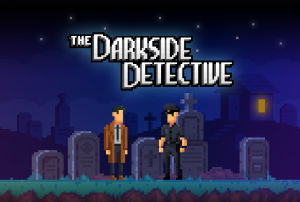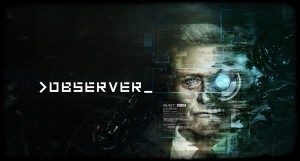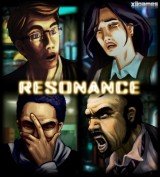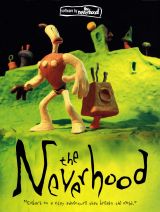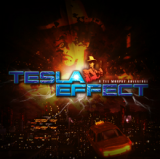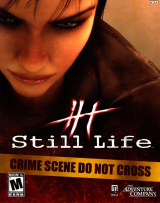Review for Finding Paradise page 2
When I’m asked to name my favorite games, To the Moon is near the top of my list. It has almost everything I look for in an interactive narrative: a well-structured, character-driven plot with a dash of humor, gameplay that doesn’t get in the way of the storytelling, a gorgeous soundtrack that bolsters the emotional themes. Six years after that short but sweet love story turned me into a blubbering mess at my keyboard, Freebird Games has finally released the long-promised sequel—and I was nervous to play it. Would it live up to expectations? Could it possibly be as good as the first game I love so much?
I won’t leave you in suspense: While it doesn’t quite measure up to its predecessor, I had a great time with Finding Paradise and wholeheartedly recommend it, especially if you loved To the Moon. (In fact, if you loved To the Moon there’s really no reason to keep reading. Go play Finding Paradise, right now, then come back and see if you agree with the rest of what I have to say!)
Like the previous game, Finding Paradise is a gameplay-lite narrative game that looks like a retro RPG. You play as doctors Neil Watts and Eva Rosalene, employees of the Sigmund Agency of Life Generation, who give dying patients a last chance at happiness by plugging into the patient’s brain and manipulating old memories to change a key aspect of their life. If all goes well, when the patient lets go and life flashes before their eyes, they remember it with the doctors’ alterations and their dying wish is fulfilled, if only in their mind.
This time the patient is Colin Reeds, a retired airline pilot with a wife and grown son. In contrast to Watts and Rosalene’s last patient, who knew exactly what he wanted but didn’t know why, Colin can’t articulate what he wants beyond a vague sense that his life, while no means a bad one, could have been better somehow. He wants to be able to say he’s lived a happy life with few regrets, but he also doesn’t want any of what he’s been through to change. Unable to name a specific wish, he has given Sigmund’s doctors permission to travel through his memories and enhance his life however they see fit, with one stipulation: his family must not be affected. However Watts and Rosalene decide to help him, his memories of his wife Sofia and son Asher must not be erased or degraded in any way.
Once they’ve set up their equipment and taken a quick look around Colin’s apartment for clues about what he wants, the quest begins with his most recent accessible memory. The doctors expect to work backward through Colin’s life until they reach his first accessible memory, at which point they’ll make a tweak that changes how his entire life plays out—at least, that’s how it’s always gone in the past. Traveling between memories involves finding glowing orbs called memory links, as well as significant items that connect back to earlier memories, called mementos. You need to collect between one and five memory links per scene, depending on its complexity, and then use them to smash through the memento’s protective barrier so it can serve as a portal to the next memory back.
This sounds like more work than it is. Finding memory links is as simple as clicking on appropriate hotspots (usually Colin himself or a nearby object), which triggers a brief replay of a moment from Colin’s life. Smashing the barrier really just means clicking on each collected orb, displayed at the bottom of the screen, so the doctors can hurl it at the memento and break the barrier. Then you’ll solve a quick slider-type grid puzzle that involves lining up matching icons, in order to activate the memento and travel to the next scene. The rules of the slider puzzles get more complicated as the game goes on, but I have to admit I easily brute-forced most of them without completely understanding the conditions for solving them. By the end of the game these started to get repetitive, but since they can be clicked through so easily, at least they’re never more than a few seconds’ annoyance.
Finding Paradise can be played with the keyboard and mouse or with a gamepad, and your choice may impact your playing experience slightly. You can navigate the characters entirely with the mouse via simple point-and-click, or in combination with the arrow or WASD keys to move the doctors around and the mouse to explore the scene. When the cursor moves over certain characters or items, an icon appears on screen to tip you off that you can interact. You can then click to move the player characters directly to that spot. With these controls, finding memory links is mainly a matter of sweeping the cursor around the screen and clicking on anything you can, though usually the likely candidates are fairly obvious. Sometimes even this isn’t necessary, as certain hotspots are marked with an asterisk or twinkle faintly to draw your attention, though not all are highlighted in this way.
If you play with the gamepad, as I did, moving is comfortable with the left analog stick or D-pad, but finding hotspots is trickier because there’s no cursor, and therefore no icons appear on interactive items. This makes finding hotspots much more of a pixel hunt—without a visual indication of what’s clickable, you can only get close to something that looks interesting, press A, and hope for the best. If the character isn’t quite close enough when you try to click, you’ll get no result, which led me to do a bit of aimless wandering before I realized what I was missing. I also had trouble during a series of arcade-style minigames designed to use the WASD keys (the gamepad controls were sluggish and sometimes stopped responding completely), but luckily you can still progress if you fail at these sequences, and it’s easy enough to switch to the keyboard temporarily. Even with these quibbles, I wouldn’t have traded sitting back on the couch with a gamepad for sitting at my computer with the mouse and keyboard, but the lack of controller optimization is a shame considering how natural a gamepad is with the RPG style.
I love the concept of working backward through a person’s memories to locate the root cause of their dissatisfaction, but in Finding Paradise this process takes on a distracting complexity when Colin’s memories deviate from their expected structure. Instead of following a straight line backward through time, his memories bounce around, which the doctors make clear is not normal even if the player doesn’t have enough context to grasp why. Jumping back and forth through time makes for a more mysterious story, raising questions about both what Colin wants and why his memories aren’t following the usual format, but this structure gets convoluted as the story progresses, particularly whenever the doctors pause to point out to each other how unusual it is. It’s a testament to the writing that I fully believe these characters understand more about their world and their memory machine than I do, merely tagging along on this one case (and one other case six years ago), but whenever they riffed on what they believed was going on in Colin’s brain, I could barely follow their logic. The capable Rosalene and oddball Watts have a funny rapport and I enjoyed their banter even when their theories went over my head, but like Colin unable to specify what he wanted to change in his life, at points I also felt like I should understand what was going on but just couldn’t quite explain it.
The non-chronological sequencing also made the story’s climax hard for me to swallow. A key character’s explanation for why they had to exit Colin’s life seemed sharply inconsistent with their motivations only a few minutes earlier—but that’s “a few minutes earlier” from my perspective, not Colin’s. When you see a person act one way in the present day, followed immediately by very different behavior in a flashback, you have to quickly fill in a lot of blanks to make sense of this seeming incongruity. It doesn’t help that the game has only three manual save slots and an autosave, so even if you wanted to replay an earlier point in the game to try to better understand scenes you didn’t know enough to fully grasp the first time around, unless you take the time to manually back up your saves, you won’t be able to.
In addition to the main tale of Colin’s life, there is an overarching story involving the doctors and their colleagues. Watts has done some tinkering to the machine that has an impact on his and Rosalene’s time in Colin’s head, and he’s still addicted to the pills we saw him popping in To the Moon. Midway through Colin’s case, the story takes a lengthy detour when two other doctors show up who seem to be on to Watts’s shenanigans. I actually liked spending some time with the doctors outside of the patient’s subconscious, and the parallel stories provide suspense and nicely build conflict to keep up momentum during Finding Paradise’s approximately five-hour running time, but having finished the game I’m not sure how necessary the doctors’ (unresolved) subplot really is. A reference to this game as “Episode 2” on one of the closing screens suggests that there’s more to come. As much as I love this world and the characters of Watts and Rosalene themselves, it’s hard to get excited about the cliffhanger involving their work at Sigmund when so much time has passed between games already. I’m torn between wanting a storyteller who clearly puts a lot of effort and love into his creations to take as much time as he needs, and not wanting to be strung along.
With the setup of Colin not clearly articulating his wish, I thought he’d be hiding a dark secret. His issues turn out to be much simpler and, at the same time, much more complicated: a life that’s generally happy but peppered with small regrets, a lonely childhood, a vivid imagination forced into hibernation in the interest of “growing up.” Designer Kan Gao has a gift for shining light on aspects of human nature so universal they’re rarely acknowledged out loud, and with my fortieth birthday around the corner (yikes!), Finding Paradise certainly got me thinking about the paths not traveled and what makes for a fulfilling life. At its core, this is a quiet, thoughtful story I’d expect to find in literary fiction, not an adventure game. (That’s a compliment!)
For most of the game I was happy to enjoy the narrative in a barely interactive way. Exploring the scenes and finding memory links kept me just busy enough that I didn’t feel like I was clicking through a movie. Even without solving any integrated puzzles, I did feel like a participant. That said, a little more interactivity—some dialogue trees, some choices about where to go next and which conditions to change—may have made the experience more satisfying. I especially felt this way near the end of the game, reaching the climactic moment of understanding what Colin wants. At this point, after all the build-up, I wanted to make the changes in his life that would satisfy his wish—that’s what had been promised to me as the player. Instead the climax and ending are driven by cutscenes, which felt like a missed opportunity to make good on the potential for interactive storytelling.
If I’ve spent a disproportionate amount of time dissecting Finding Paradise’s story in this review, it’s because that’s the main difference between this game and To the Moon. Other elements, such as the music and art, are exactly what I expected and just as good as I hoped. Kan Gao (who is a composer as well as the game’s designer) and Laura Shigihara again prove their musical chops with a strong soundtrack that works just as hard as the writing to deliver the emotional punches. Colin is a cello player, and the scales he practiced as a kid are central to the score and intertwined into the story itself. A couple of themes, such as the playful tune that accompanies the doctors’ antics, carry over from To the Moon, a “recycling” that provides welcome cohesion between the two games. Aesthetically, Finding Paradise makes creative use of an old-school pixel art style, with several surreal locations inside Colin’s mind as well as real-world locations including a small airport, an aquarium, a high-rise apartment building, and on stage during an orchestral concert.
In spite of its 16-bit look, Finding Paradise is not a role-playing game, but it pokes fun at its roots with numerous references to retro RPGs and a few simple arcade sequences. As someone who loves Japanese RPGs but hasn’t played many oldies, I didn’t get some of these references, but I liked how much fun the writer seemed to be having with them and expect that players with a love of this genre will appreciate the jokes. As a Final Fantasy fan, my favorite of these references was a turn-based battle that inadvertently serves as this game’s only real noteworthy puzzle, but as with the arcade sequences, you can progress even if you don’t solve it. I also giggled at the self-referential jab at A Bird Story, a brief interstitial game Freebird released a few years ago as a sort of tide-me-over between To the Moon and Finding Paradise. (If you’ve played A Bird Story, it will help you understand Colin’s character, but it’s not something you need to play to “get” Finding Paradise.)
Unfortunately, a sequel always lives in the shadow of the game that came first, and while I thoroughly enjoyed Finding Paradise, it won’t be displacing To the Moon on my list of all-time favorites. That isn’t because Finding Paradise is a notably worse game—in most ways, it’s more of the same. Gao’s strong writing, music, character development, and storytelling are ever present here, and I loved tagging along with doctors Rosalene and Watts for a second adventure. But as I reflect on it, Finding Paradise’s story seems muddled in a way that To the Moon’s wasn’t, and I missed the sense of satisfaction that I got the first time around seeing the patient’s new life play out. Maybe that’s the story’s theme at work: like Colin, I was generally happy with the experience but was left with lingering little regrets.
In one of Colin’s first accessible memories, a Sigmund Corp. rep warns him that if he doesn’t have a specific wish, results can’t be guaranteed. For better or worse, I got out of Finding Paradise exactly what that salesman promised. Unable to put my finger on precisely what it’s missing for me, the best I can say is that this is a game I’m glad I played, and if you’re a fan of character-driven games with emotional leanings, it’s one I recommend you play, too. But if you somehow missed To the Moon, start there.


